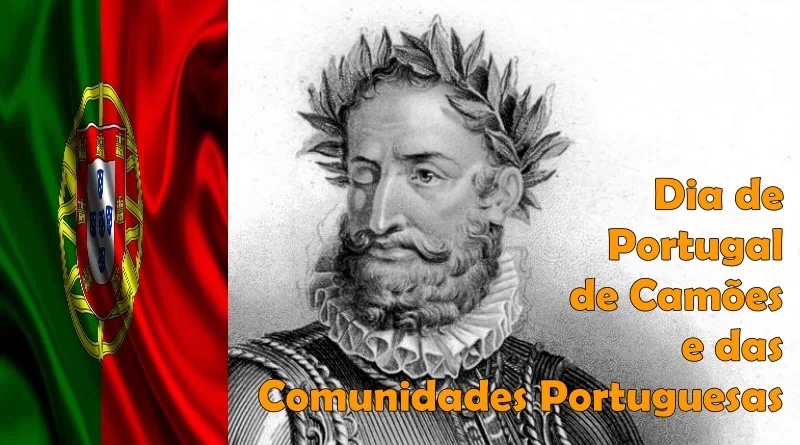Edited by Anna Popper
June 10 is celebrated as Portugal Day, honouring the enduring legacy of Luís Vaz de Camões and the global Portuguese communities. While it is customary for nations to commemorate their national day on the birth date of a significant historical figure, the exact date of Camões’ birth remains uncertain. Therefore, Portugal has decided to honour him on the date of his death, 10 June 1580.
This day is a poignant moment to pay tribute to Portugal, its language and the rich Lusophone culture that spans continents. It also recognizes the shared values and heritage that unite Portuguese people worldwide, as well as the substantial contributions of Lusophone and Lusodescendant communities across the globe. Portugal Day celebrates the country’s achievements, also the resilience and cultural vibrancy of the Portuguese identity throughout history and up to the present day.

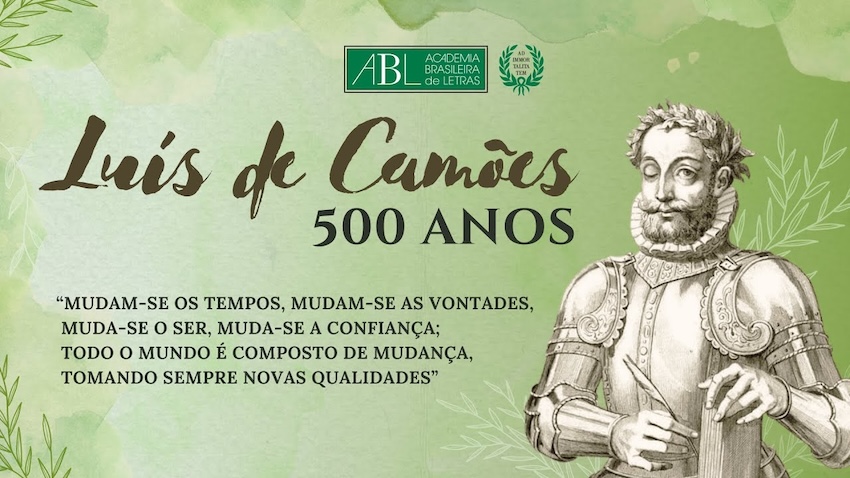
The year 2024 is of particular significance as it marks the 500th birth anniversary of the greatest Portuguese poet, Luís Vaz de Camões, who was born in Lisbon in 1524. Considered one of the most prominent figures in Lusophone literature and one of the major poets in the Western literary tradition, Camões is the author of his epic work “Os Lusíadas” (The Lusiads), dedicated to the heroic deeds of the Portuguese people and the illustrious spirit of the nation.
The universality of the Portuguese language, along with the richness and diversity of its culture, is deeply rooted in Camões’ vision. This celebration also serves as a reflection on the history of Portugal and the enduring legacy of its people.
On the occasion of the National Day of Portugal and the 50th anniversary of diplomatic relations between Portugal and Hungary, H.E. Jorge Roza de Oliveira, Ambassador of Portugal to Hungary and his wife Ms. Vera Vasconcelos de Abreu hosted a diplomatic reception at the Ambassador’s Residence, attended by a large number of guests, including Hungarian officials, members of the diplomatic corps, representatives of the cultural, business and academic fields, and of the Portuguese community, as well as friends of this outstanding country.

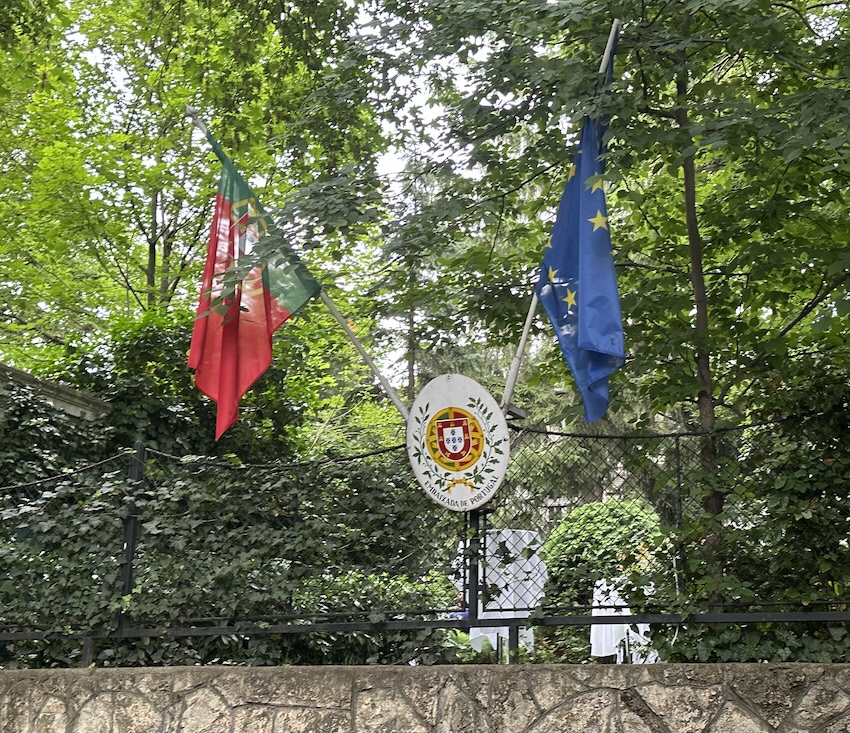
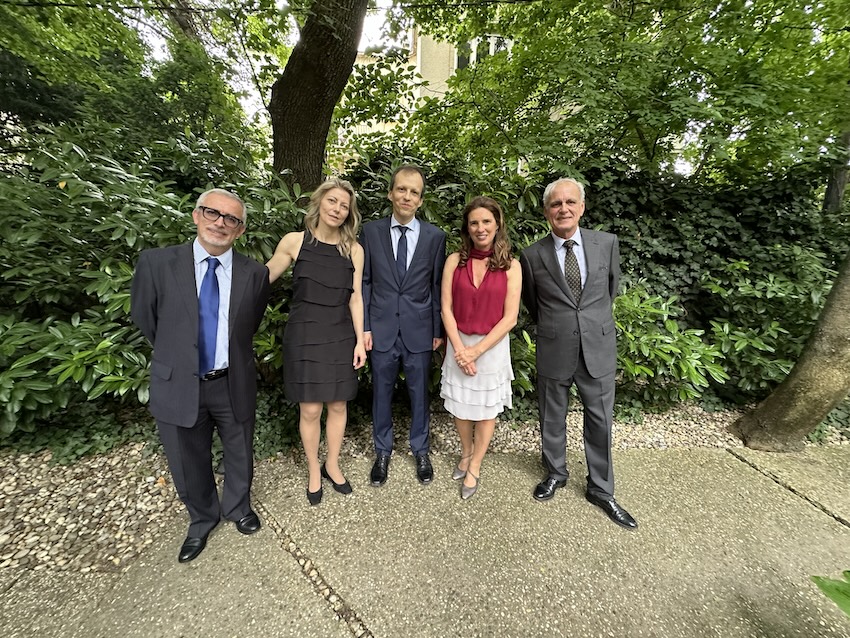
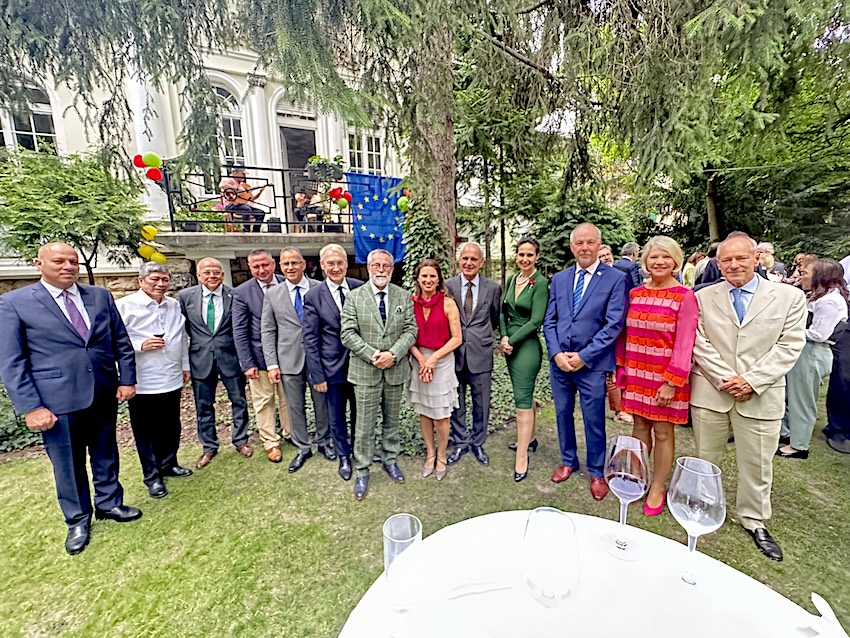


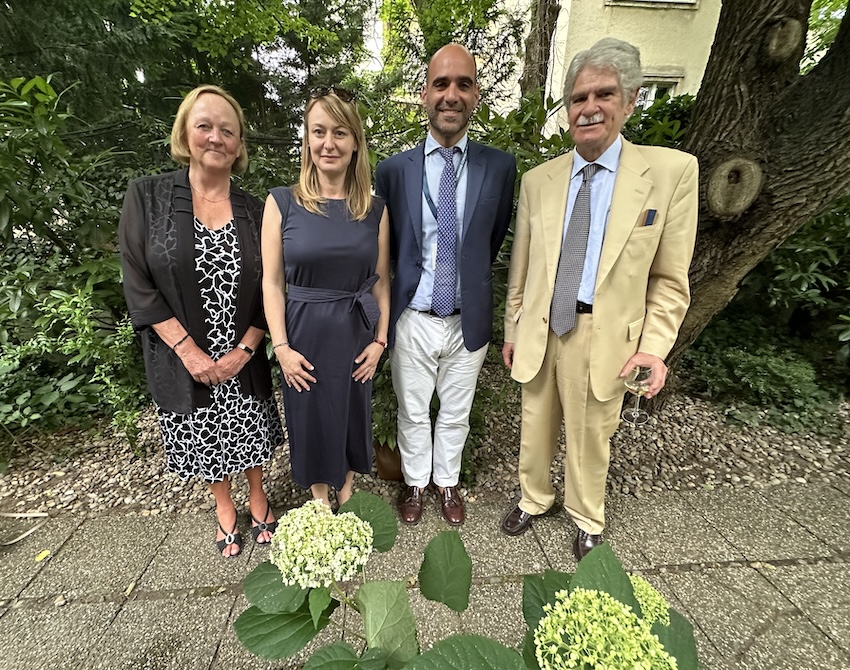
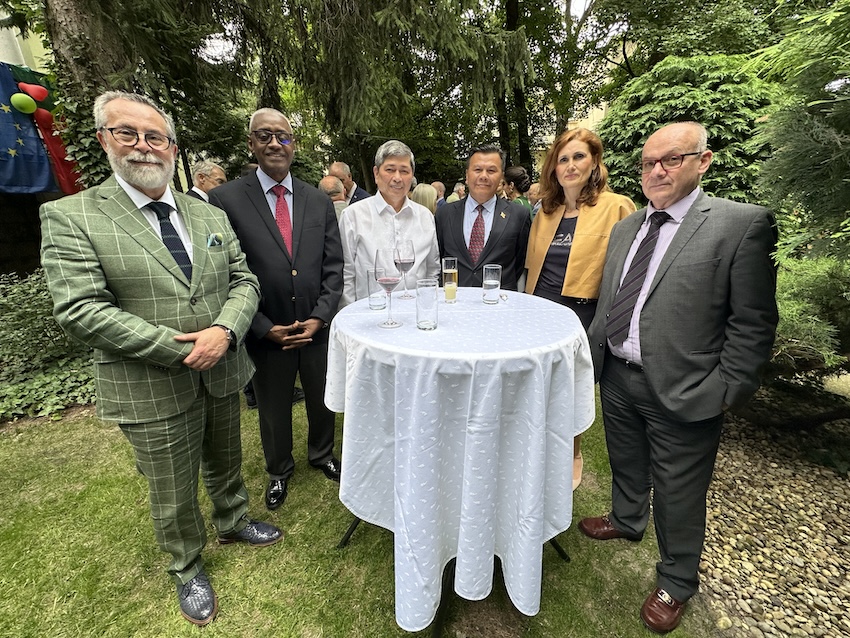

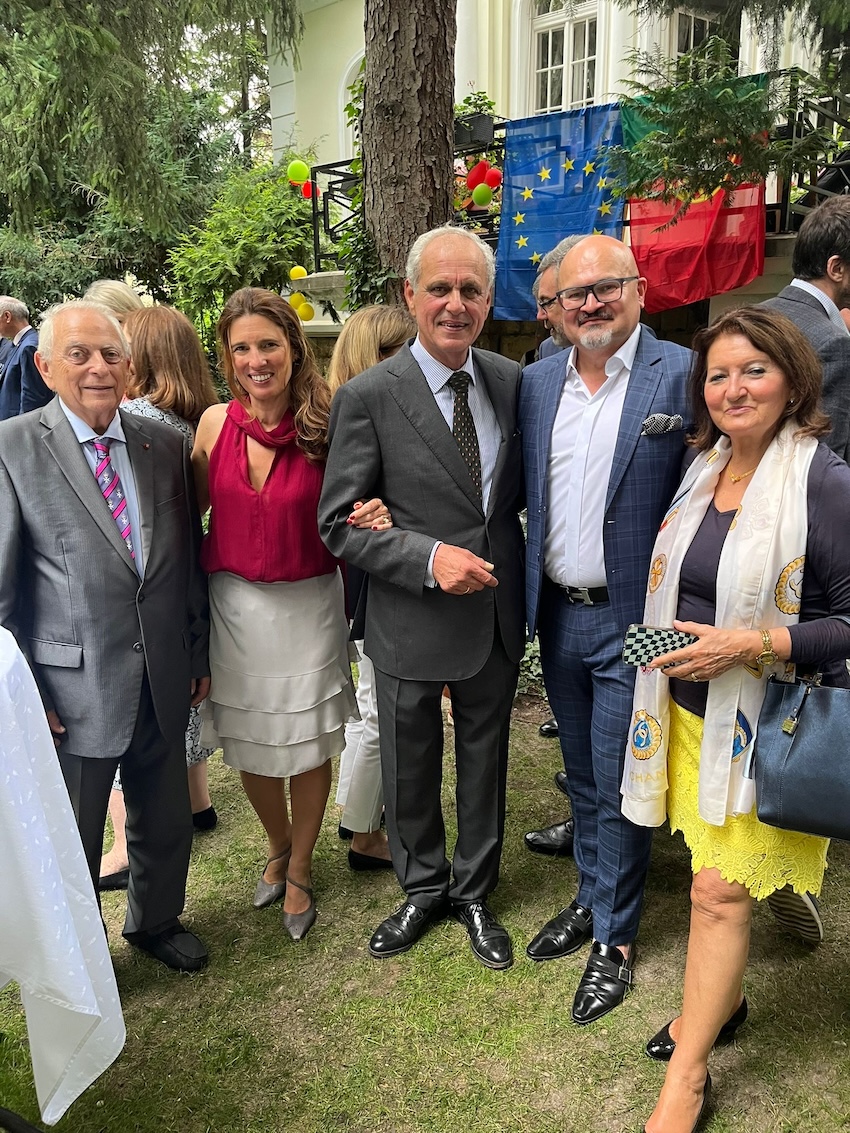


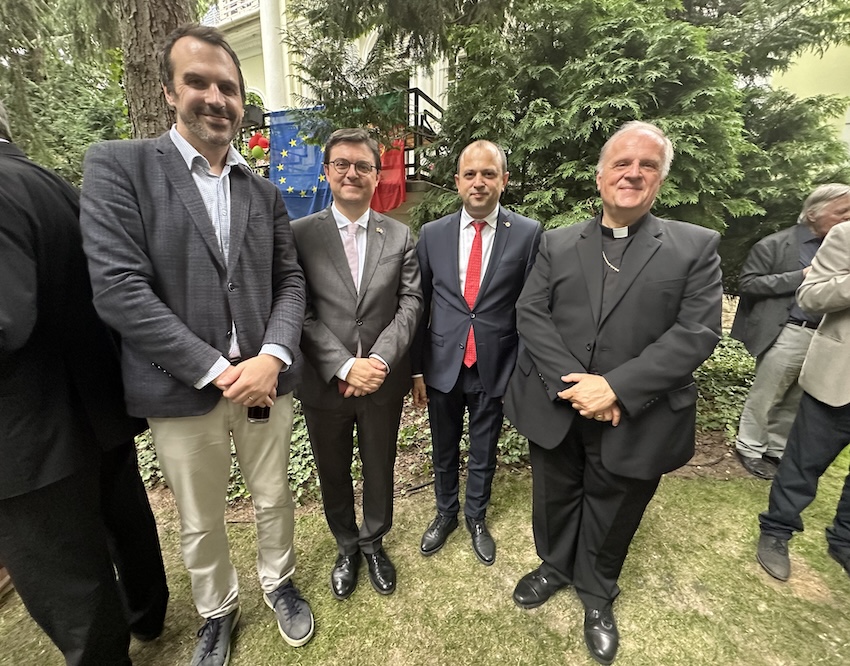


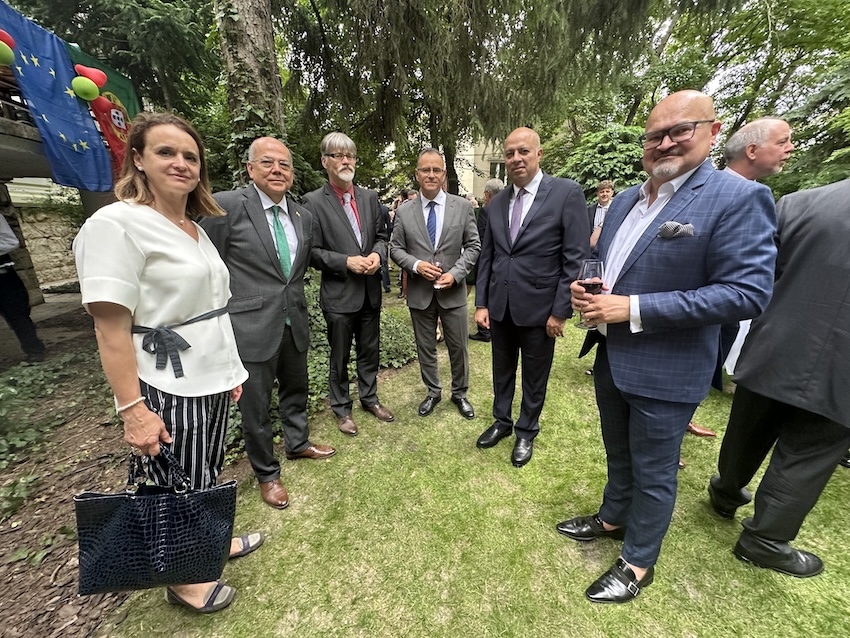
The event commenced with the playing of the Portuguese national anthem “A Portuguesa”, the Hungarian national anthem and the anthem of the European Union.
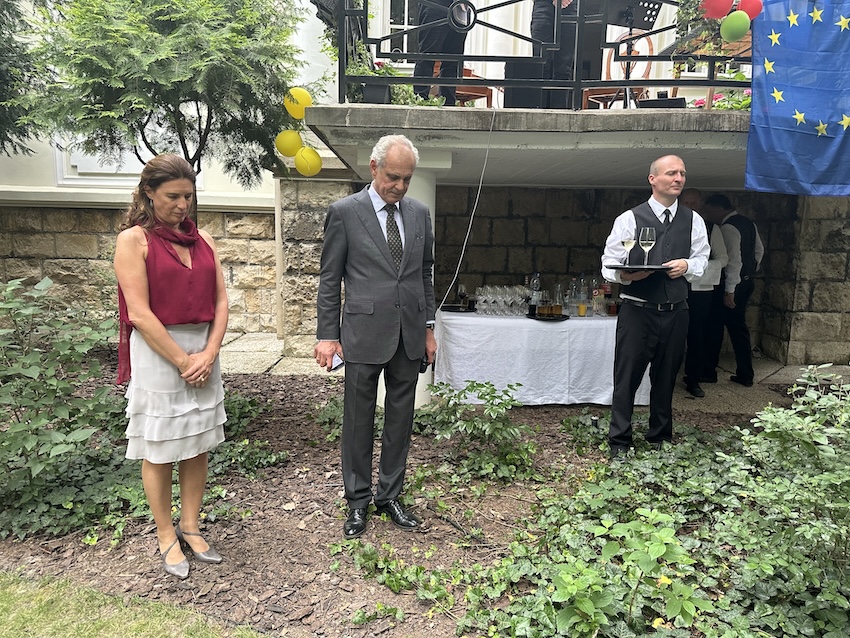
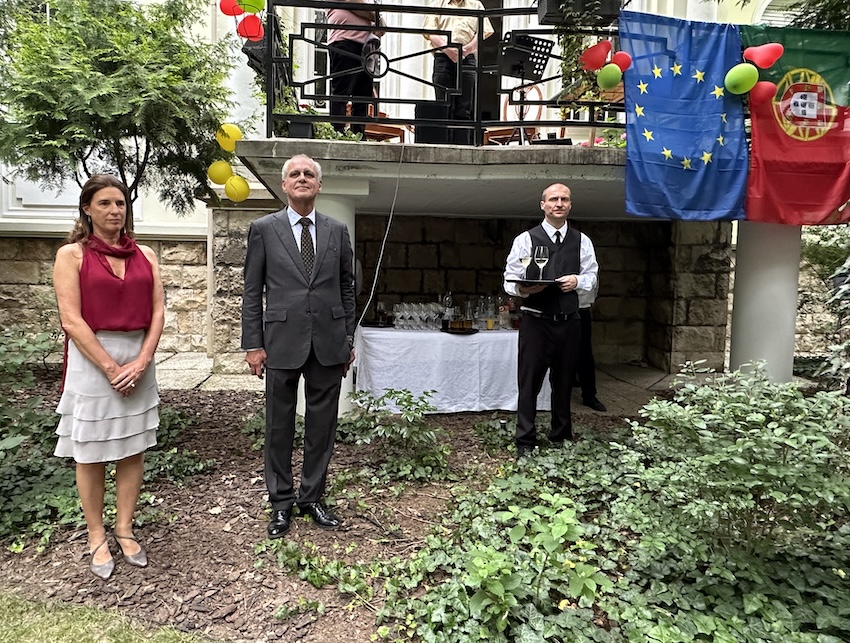
The Ambassador then delivered his speech, highlighting the significant anniversaries being celebrated this year:

“I express my thanks to my team at the Embassy for all their work in sometimes complicated situations. And to those here at the Residence for putting up today’s event. Especially my wife Vera for coordinating all of this. And thanks to Hungary, and particularly Budapest, for another year in a country and a city we became strongly attached to.
A year ago I said here that it is difficult to look at the future with optimism, although that should be our attitude as diplomats. But in truth, optimism is a dying commodity. The world is indeed in a worse shape than a year ago. And there seems to be less and less space for the art of diplomacy. Life could not have been more intense during our time here, from the pandemic to the present state of things in Europe and around the world, with war, inflation and social turmoil. But we have lived in a city and a country where one can breathe some relative tranquillity. For this we are grateful.
Portugal celebrates this year the 1974 peaceful military coup – often referred to as the Carnation Revolution (Revolução dos Cravos) – which took place on 25 April and opened the doors to democracy, decolonisation and development. Fifty years ago my country started an exciting journey that has led to what we are today: a reliable partner on the international stage.



It was also 50 years ago that we renewed our diplomatic relations with Hungary. We have today an excellent relationship, our cultural bonds are tight and economically we are increasing our presence in this country. Two Portuguese companies, for example, are presently involved in Hungary’s green transition, building solar farms in order to increase energy autonomy.
Our relationship actually goes back a long way. The tomb of Hungary’s last king, Charles IV of Habsburg-Lorraine, is in Madeira. Downtown Lisbon was rebuilt after the devastating earthquake of 1755 and its architecture owes its design to the Hungarian military architect Károly Martell (Carlos Mardel).
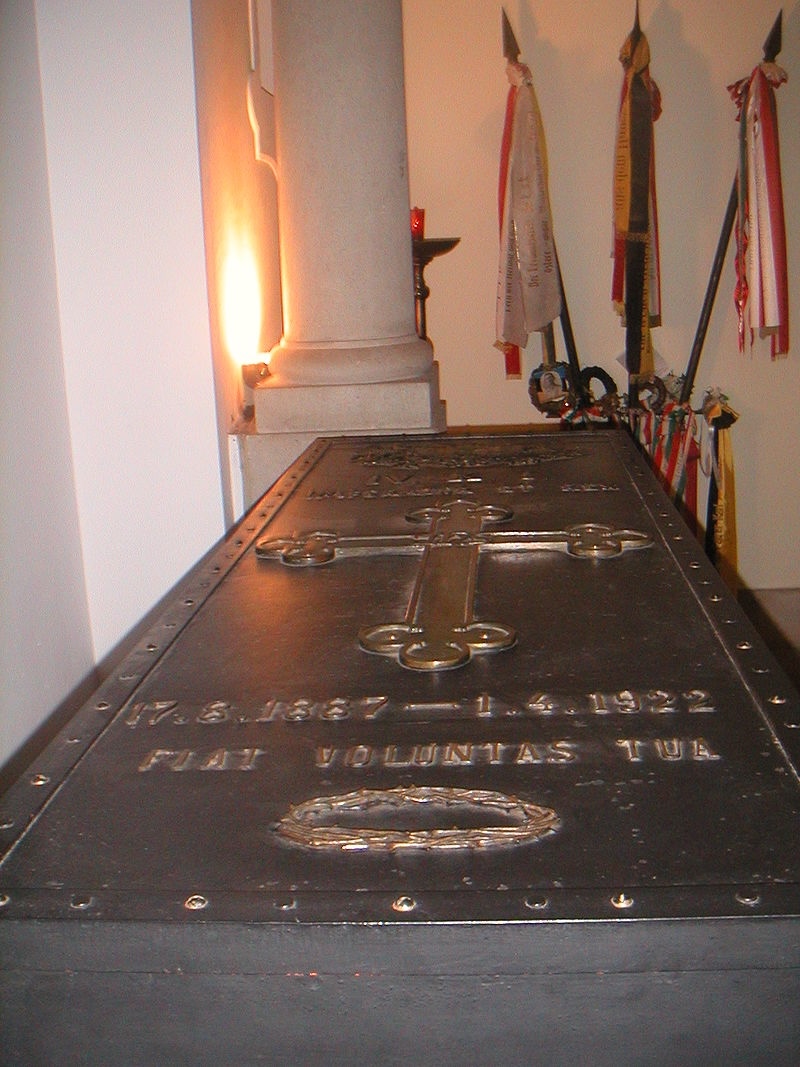
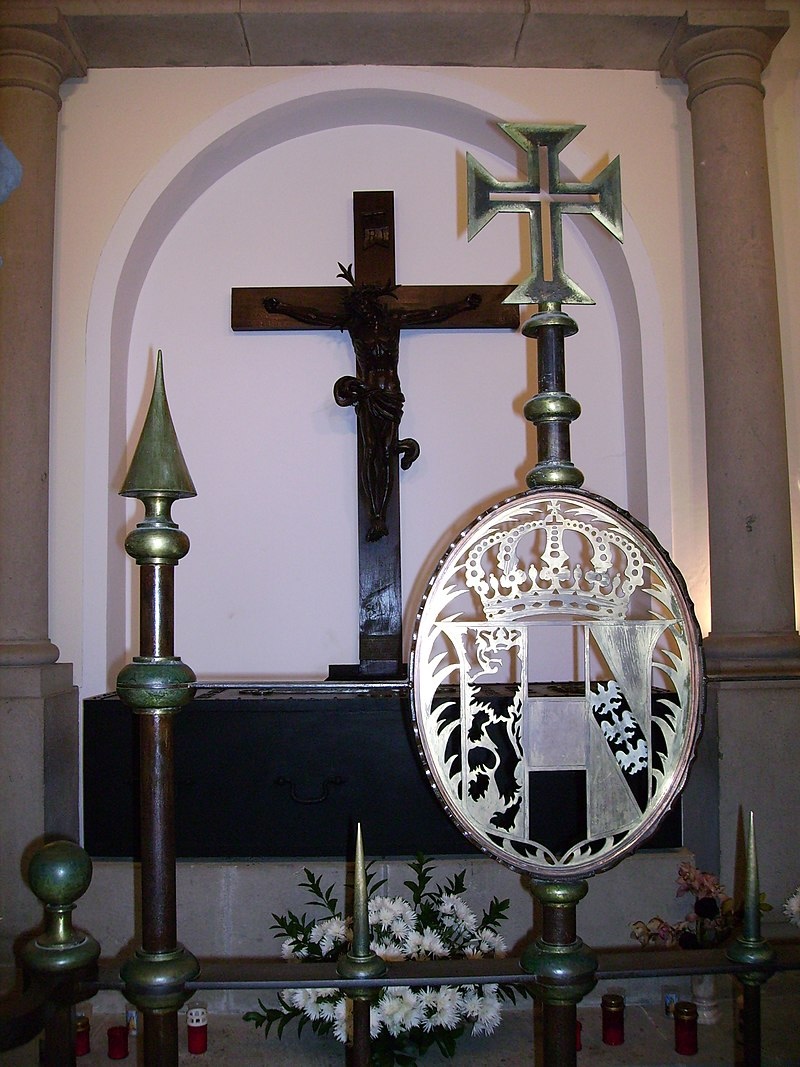
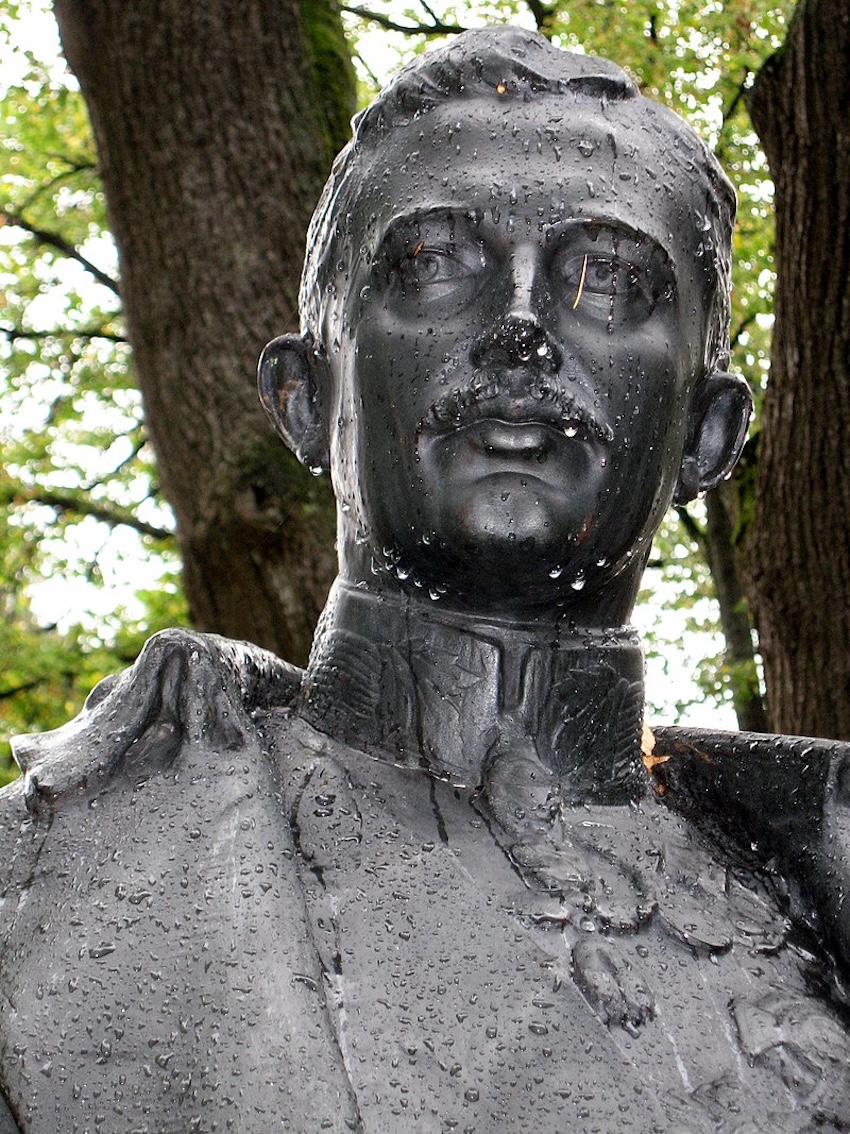
Our queens, Saint Elisabeth of Hungary and Saint Isabella (Isabel-Elisabeth) of Portugal were related and both have a miracle of the roses. And our first king Afonso Henriques was supposedly a descendant of a Hungarian. I could go on.
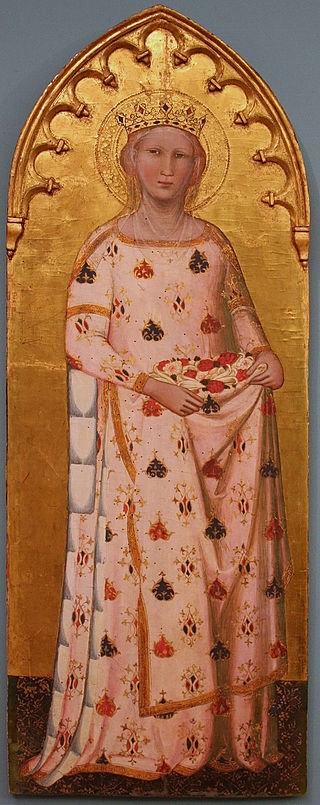
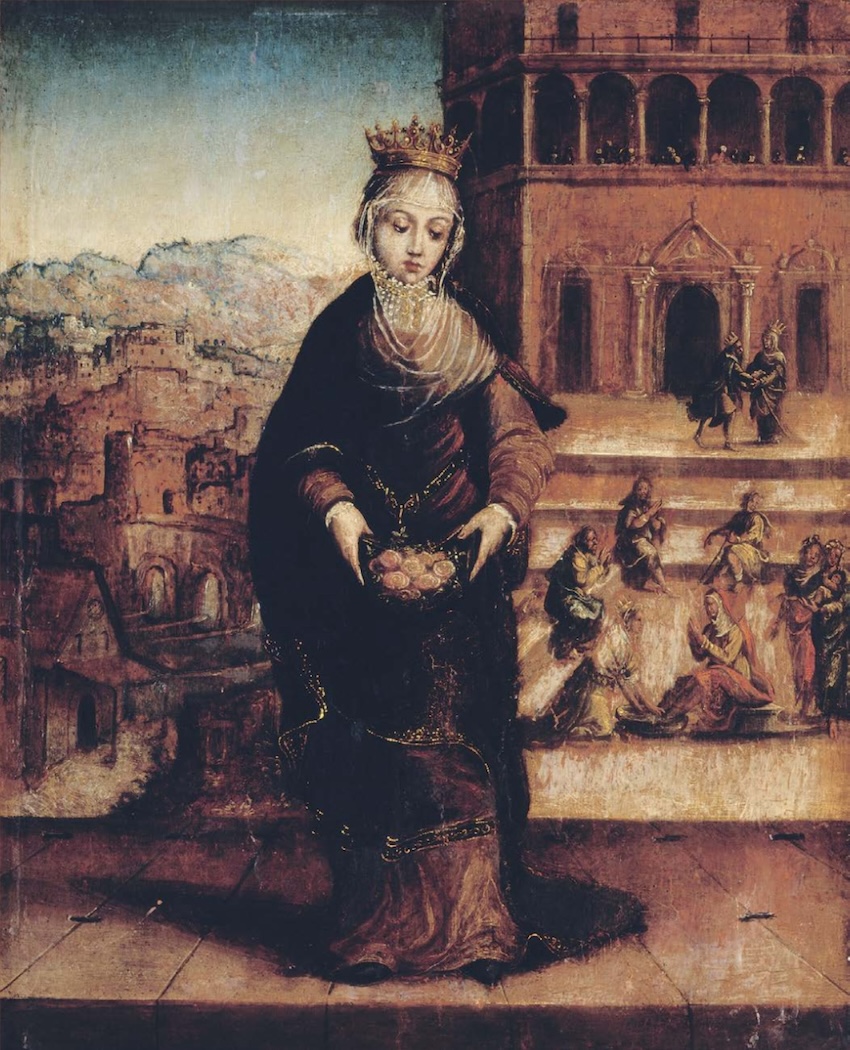
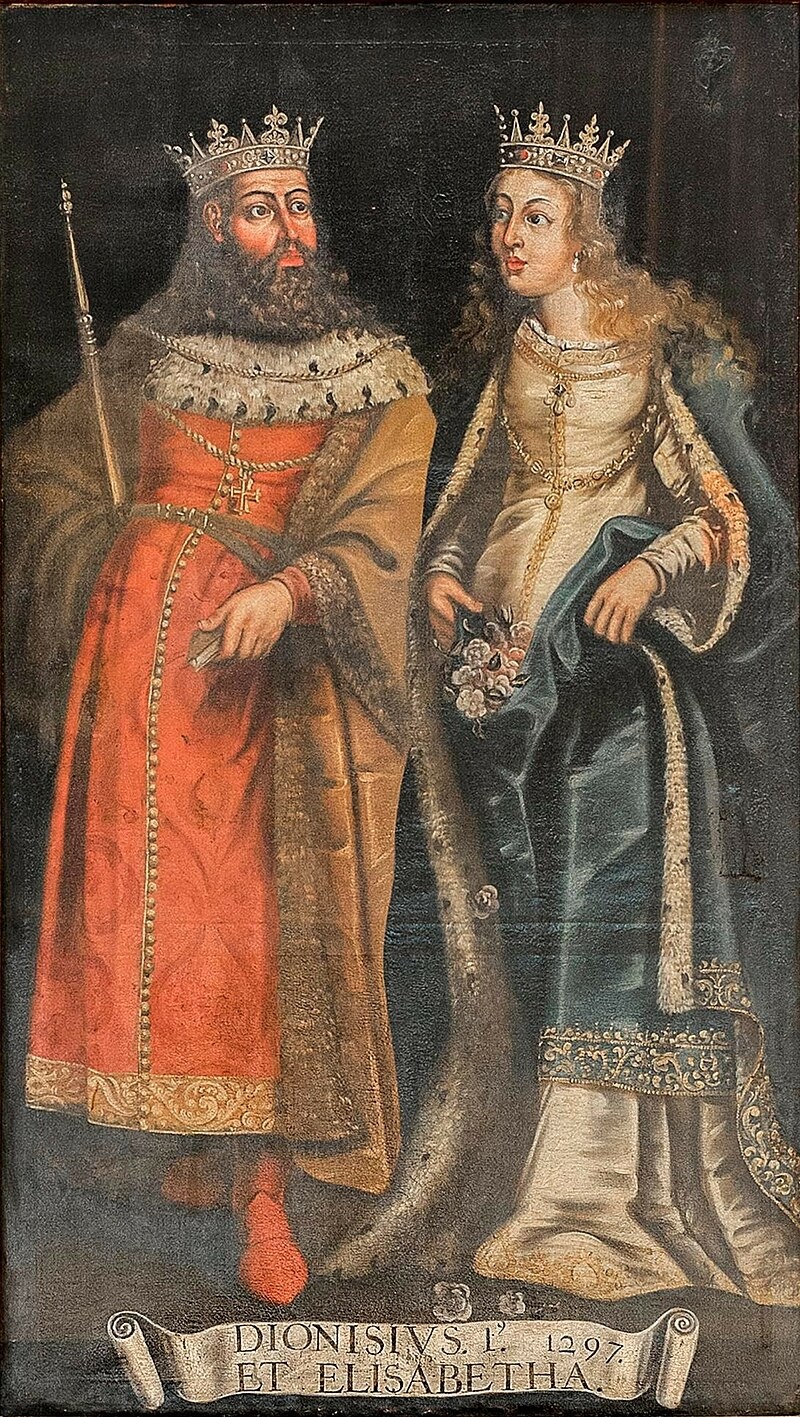
But the exact date of this 50th anniversary of Diplomatic relations is coincidentally the 1st July 2024 and the first day of the Hungarian Presidency of the Council of the European Union. We look forward to this semester and to visits from Lisbon that may contribute to strengthening bilateral relations. We are eager to cooperate with the Hungarian authorities in making their Presidency a success.

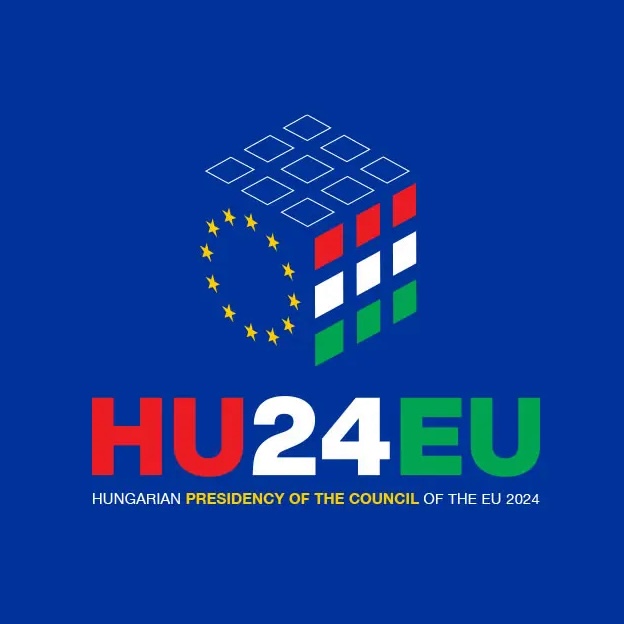

Dear friends, our National Day has the peculiarity of celebrating a poet, Luís de Camões. Another coincidence: this year marks the 500th anniversary of his birth. His literary work and tragic life played a significant role in the process that led to a truly global perception of the world in the 16th century.
A Brazilian author wrote many years ago: ‘in this celebration, some are Brazilian, others Portuguese, others foreigners; we all have the right to shelter under the mantle of the Poet. Therefore, it is better that this national festival be considered amongst us a family festival.’ Please see today’s celebration also as a family event, a family of friends, under the mantle of a poet who travelled the world, experienced war, exile and disgrace, and wrote the epic of modern man with all the contradictions we still experience nowadays.
Music, like poetry, is certainly one of the more solid bridges between peoples and cultures. To prove this, we will have today Portuguese music in the background, played by two guitarists, a Hungarian, Ferenc Peltzer, and a Portuguese, Carlos Martins.

A final friendly word to the Czech Republic, Georgia and Türkiye, our first opponents in the group stage of Euro2024. May we be together at Szabadság tér (Liberty Square) in Budapest to watch the matches and celebrate.
This year, the weather has allowed us to hold this event in the Residence garden. Enjoy the afternoon. I wish you all good health and happiness.”
“Éljen Magyarország. Viva Portugal. Long Live Hungary and Portugal!”
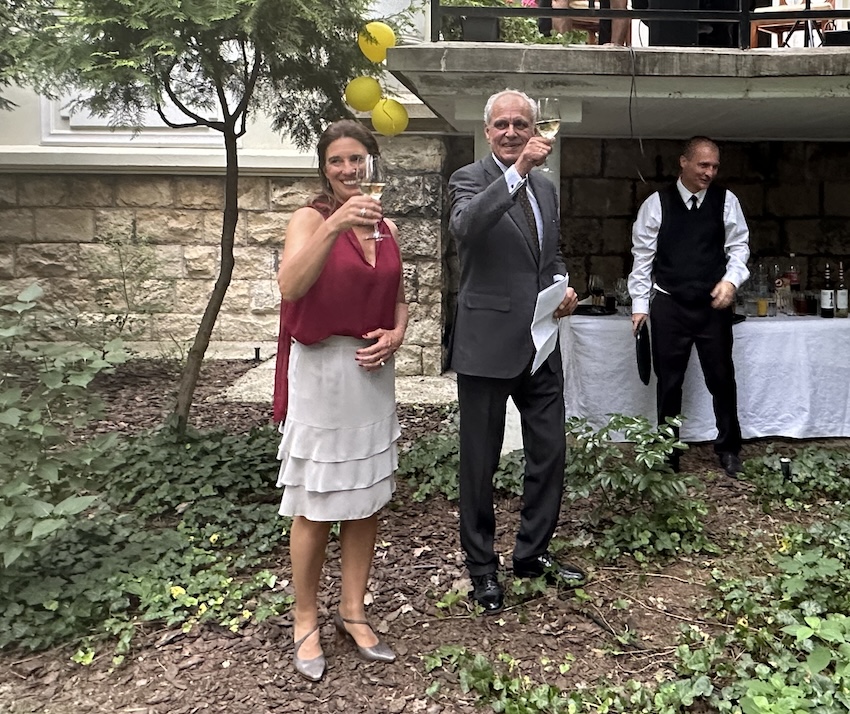
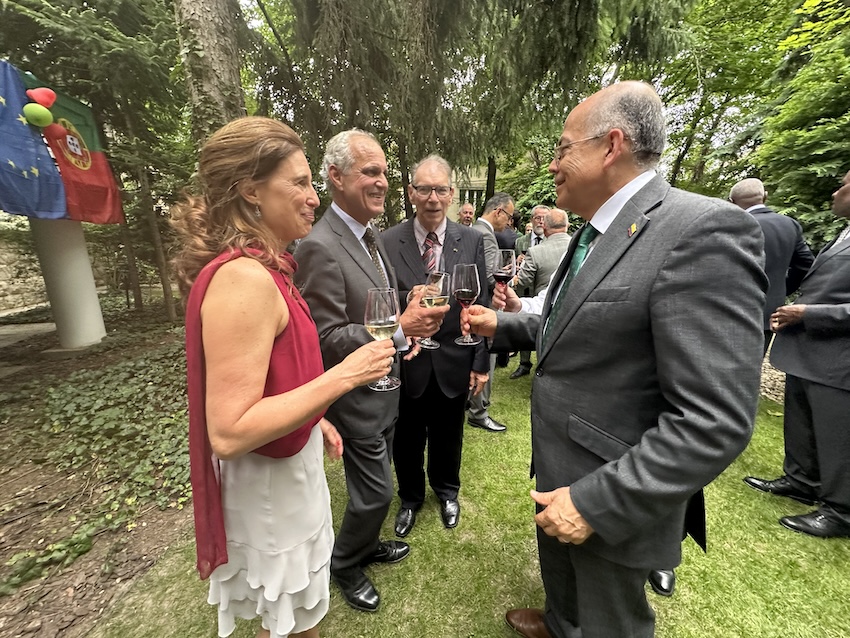

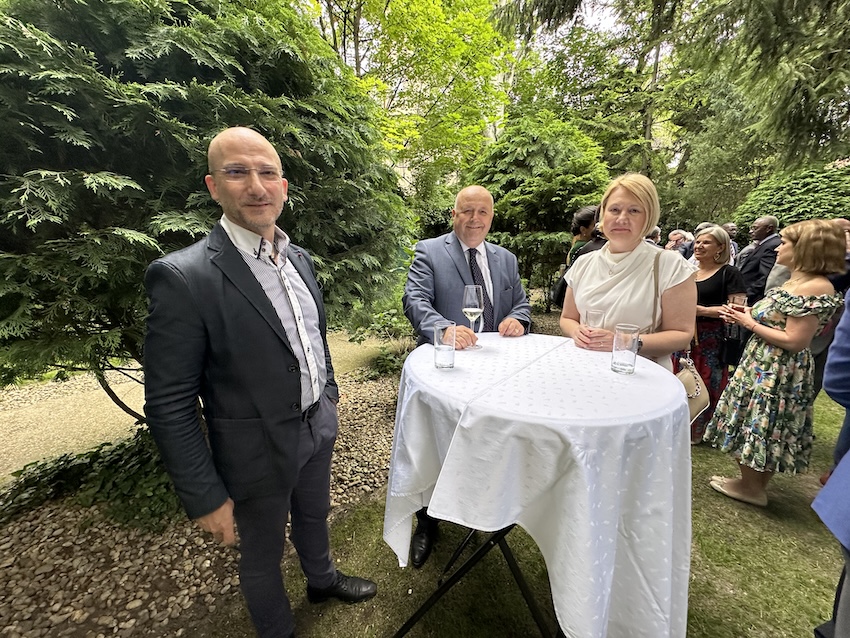

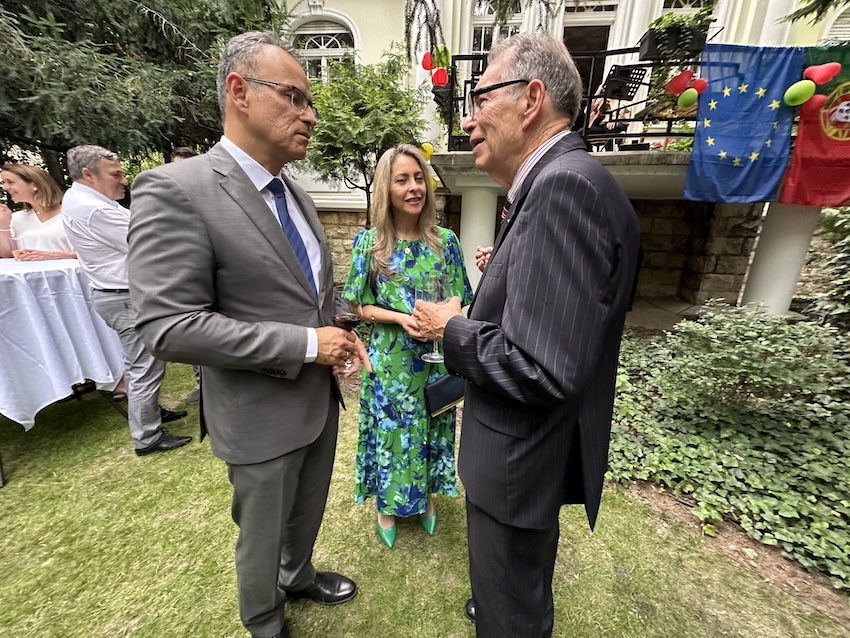



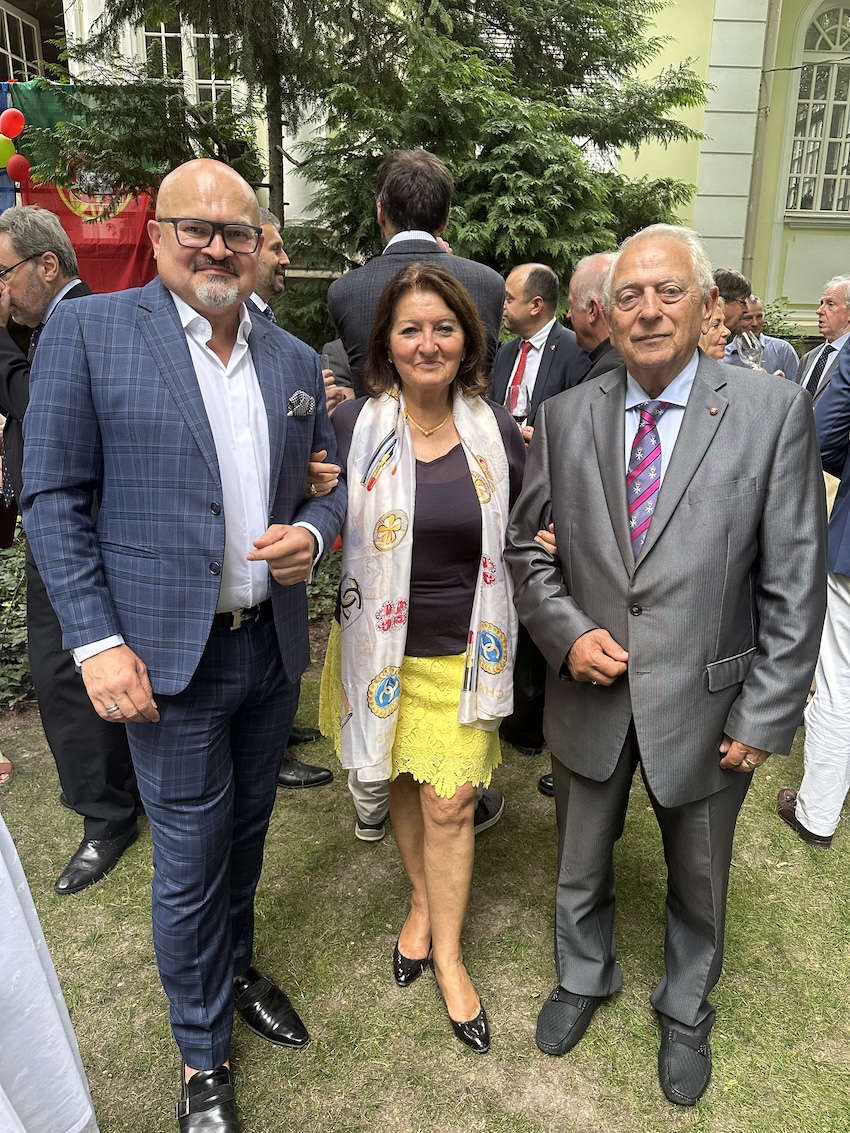
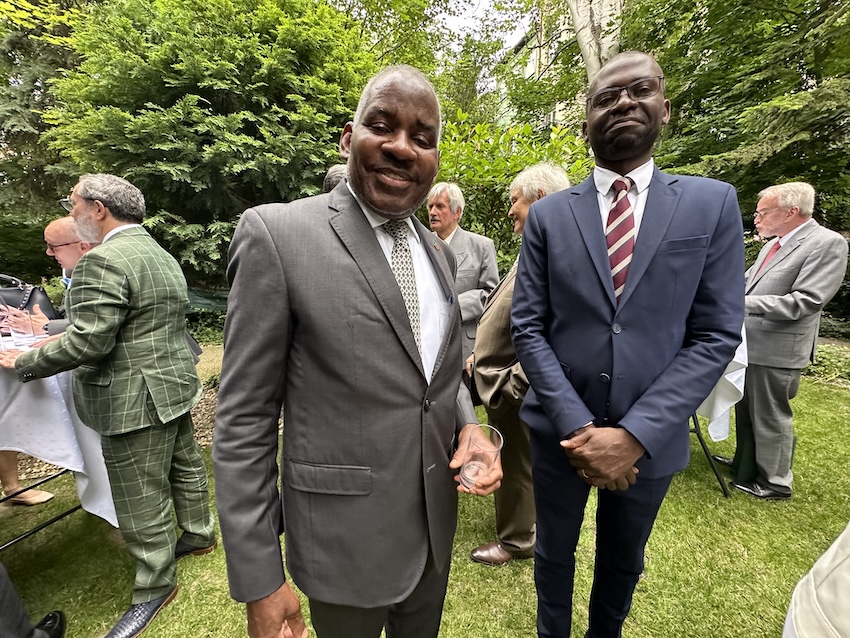
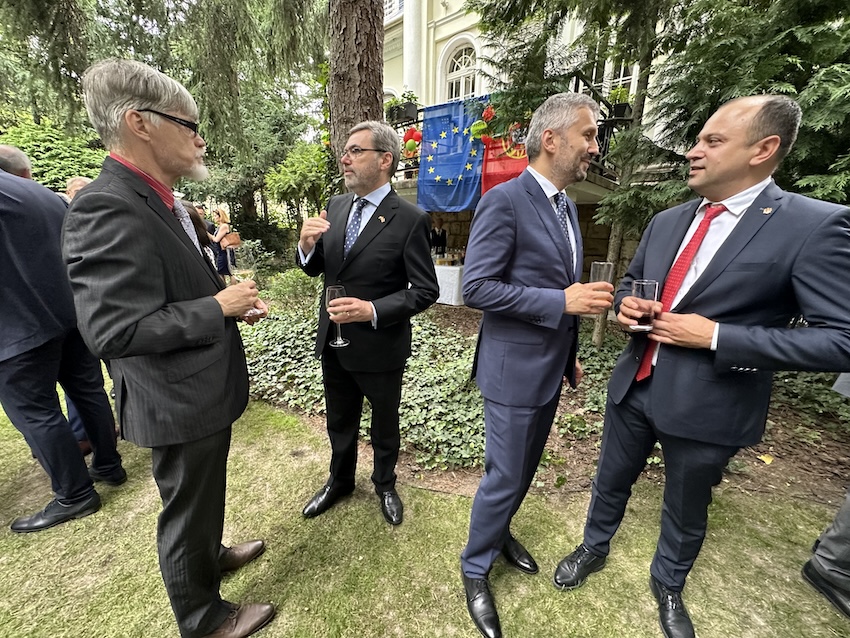






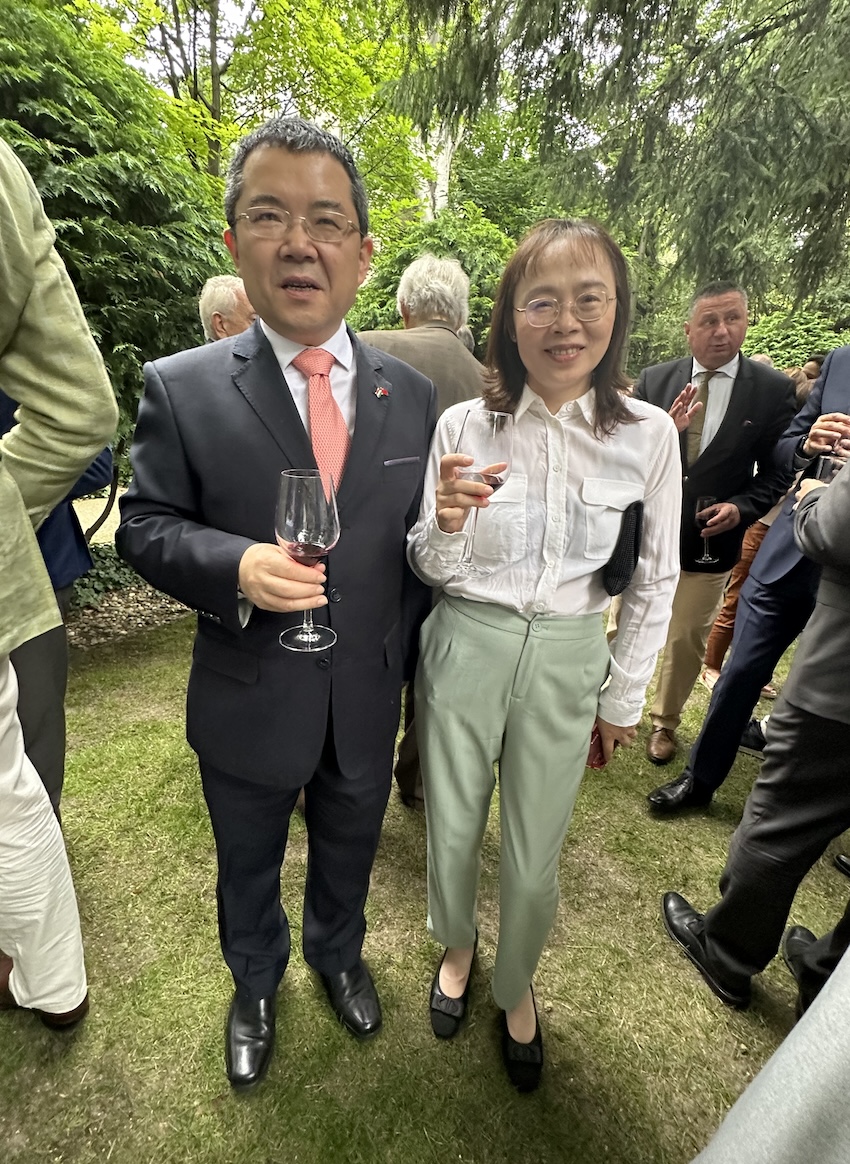



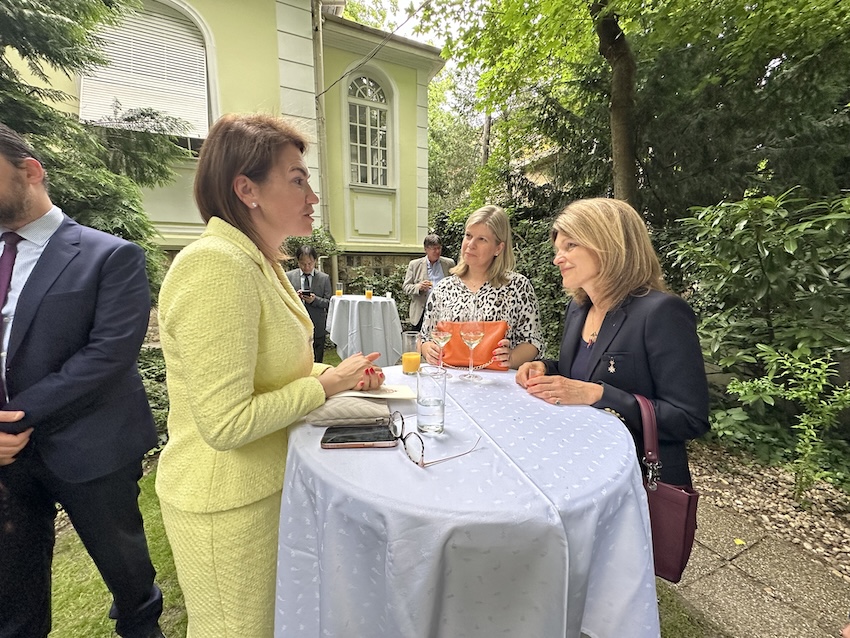
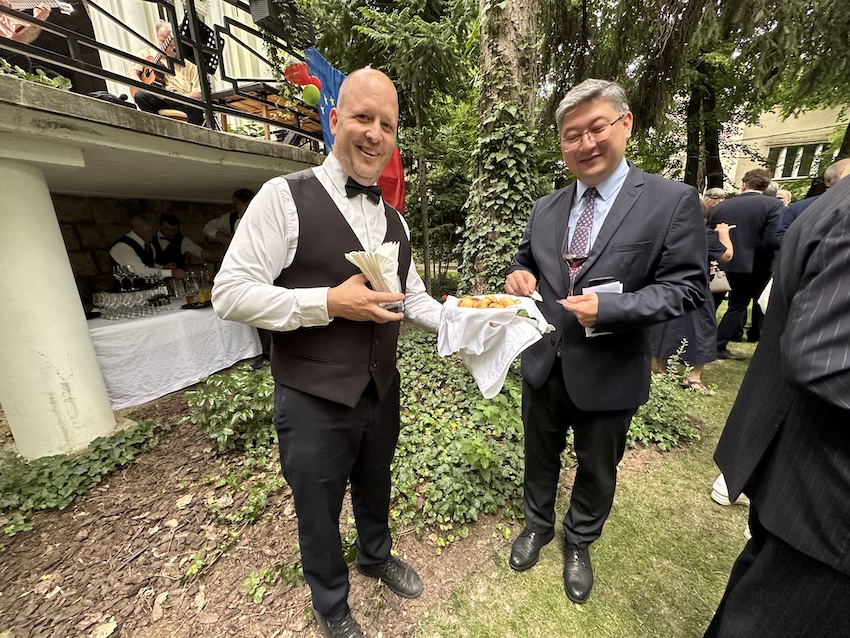
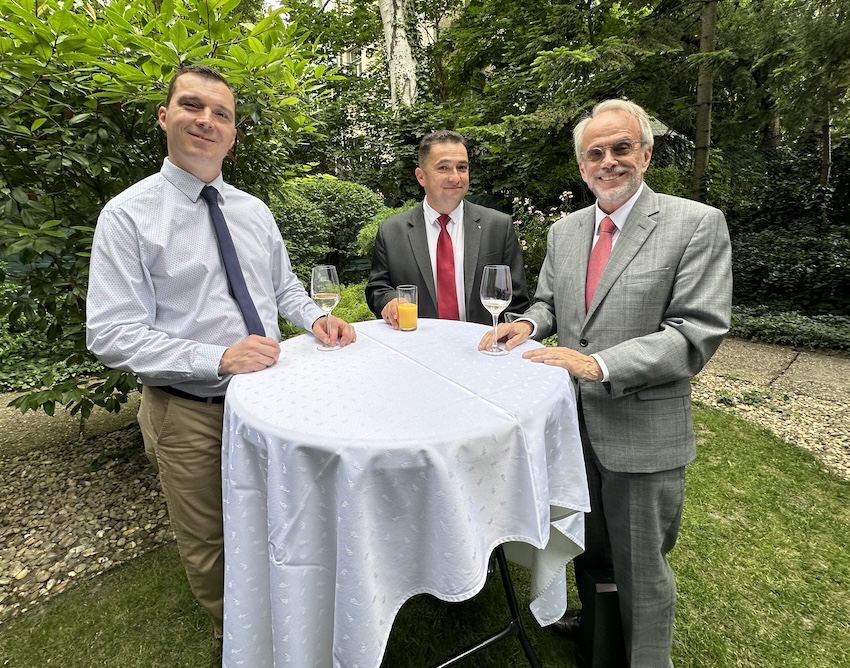


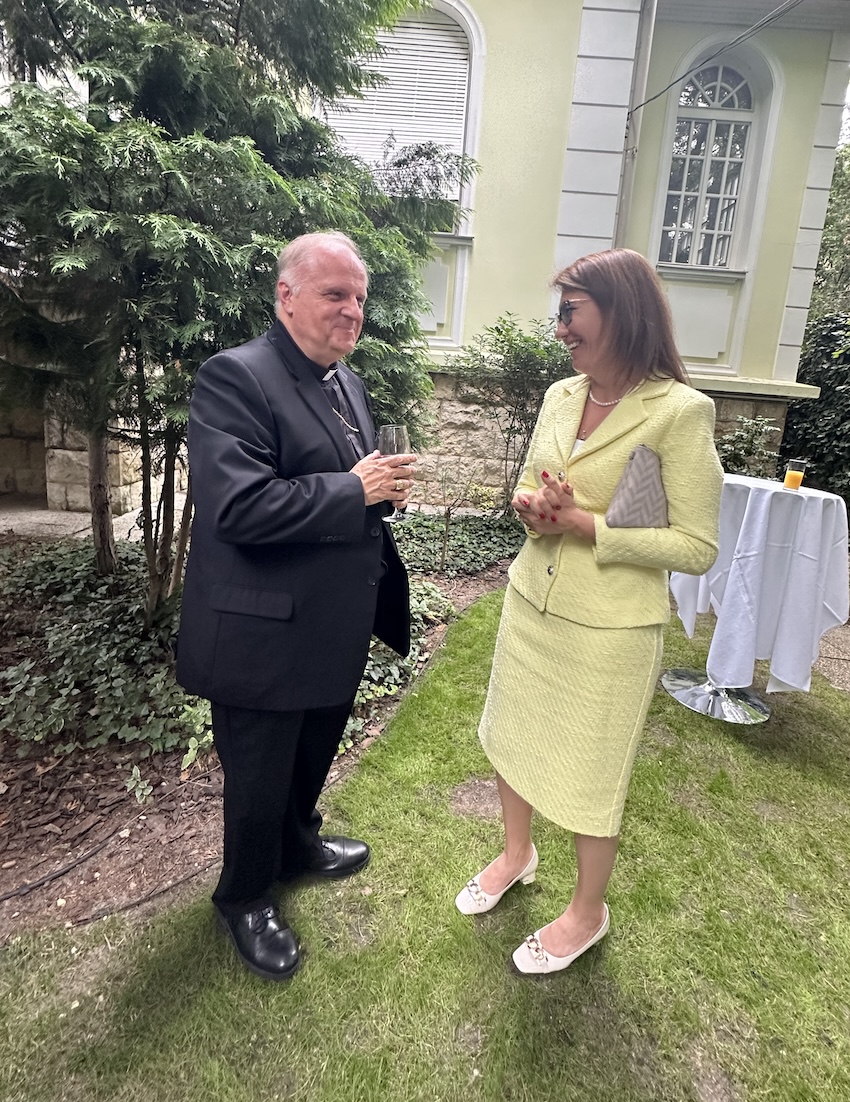
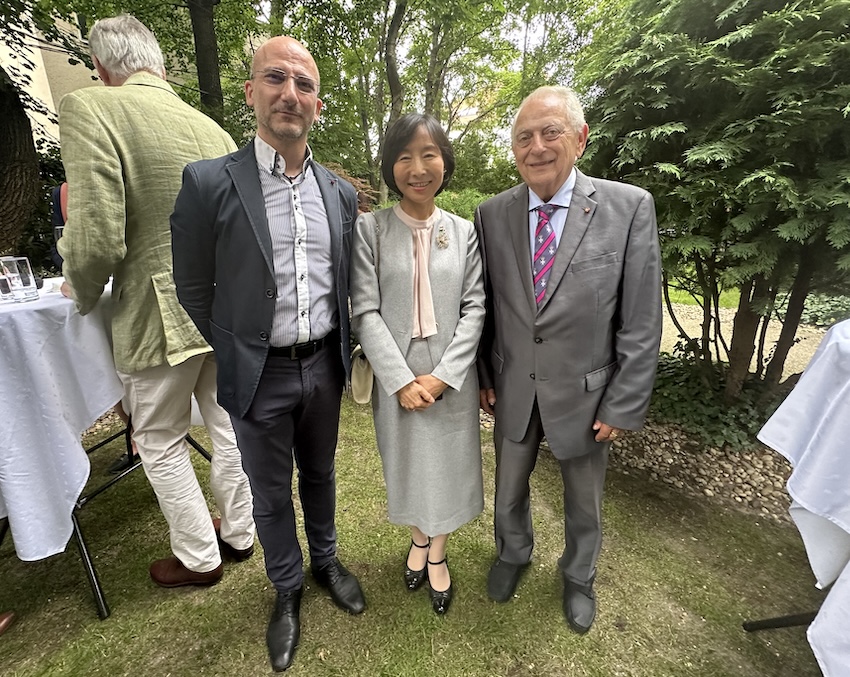





Honouring the 500-Year Legacy of Camões: The Adventurous Life of a Renaissance Man
This year the Portuguese commemorate the 500th anniversary of the birth of their greatest poet, Luís Vaz de Camões (1524-1580), who chronicled the Age of Discoveries and made significant contributions to Portuguese language and literature across lyrical, epic and theatrical genres. This era was marked by an unprecedented level of European exploration in the New World, with Portugal playing a particularly significant role. Camões is best known as the author of “Os Lusíadas” (The Lusiads), an epic poem glorifying his homeland. The title derives from the ancient Roman name for Portugal, Lusitania.
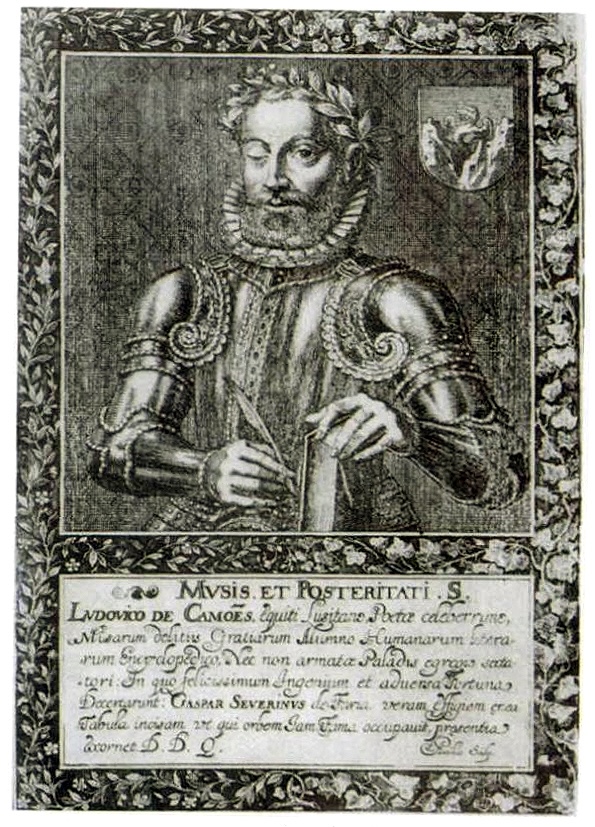


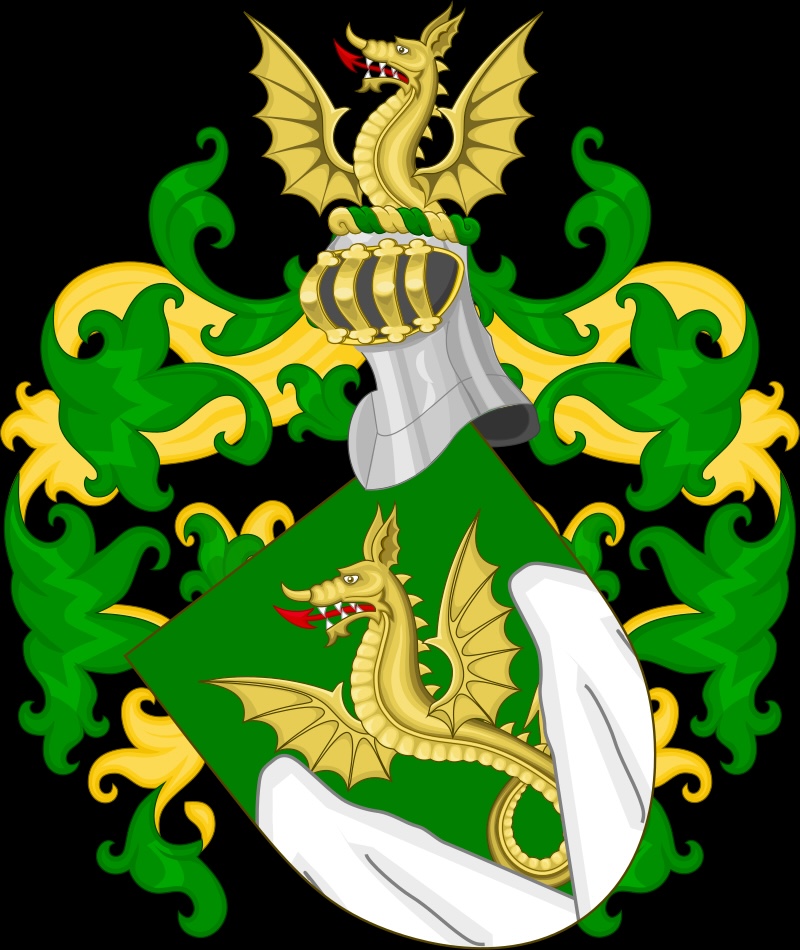
Born in 1524 in Lisbon to a lesser noble family, Luís Vaz de Camões lived a tumultuous life marked by adventure, hardship, and enduring creativity. He spent much of his life traveling, including time in the military and periods of exile. His experiences around the world, from Africa to Asia, greatly influenced his writing, infusing it with a deep sense of exploration and discovery. A Renaissance Man, he was also known as an explorer and adventurer.
Camões served as a soldier in North Africa, where he lost the sight in his right eye during a battle with the Moors at Ceuta. Despite this injury, he was renowned as the best swordsman of his era, even with one eye.
The year 1549 was decisive for Camões’ life in Portugal. He was involved in a street fight that led to his imprisonment and subsequent deportation. Following this incident, he spent the next 17 years as a soldier in India and China. His experiences during these years of exile profoundly influenced his literary work, plays and satires, contributing to the rich tapestry of adventures and insights found in his masterpiece “Os Lusíadas” (Soul of Portugal).
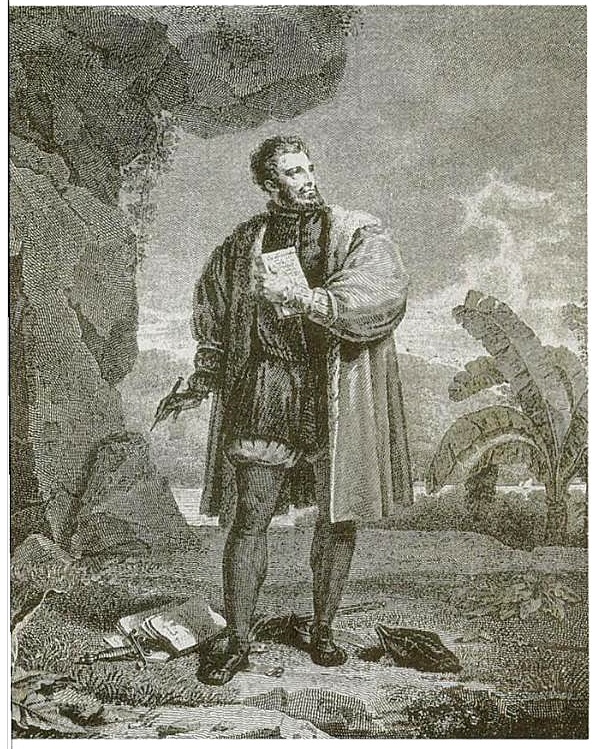
Considered the most important piece of Portuguese literature, “Os Lusíadas” has become a symbol of the glory of the Portuguese nation. Camões wrote this epic in Macau, which came under Portuguese administration in 1557. (Macau played a significant role in Portuguese history until it was handed over to China in 1999.)
The poet arrived in Macau in 1556 and worked there on his epic, which tells the history and achievements of Portugal, including episodes from his own life. He wrote “Os Lusíadas” in the Grotto of the garden that bears his name. This epic masterpiece primarily focuses on the Portuguese explorer Vasco da Gama, Count of Vidigueira, and his historic journey to India in 1497–1498.
Vasco da Gama’s voyage was a monumental accomplishment as he circumnavigated the Cape of Good Hope on the Atlantic coast of South Africa with his fleet of four ships and 200 crewmen. This journey opened a new trade route to India, establishing a direct sea route from Europe to Asia. In “Os Lusíadas”, Camões skilfully weaves past and present, integrating both the mythical origins of his country and the events that followed Vasco da Gama’s voyage. The epic not only celebrates the triumphs of Portuguese exploration and discovery, but also reflects on broader themes of heroism, national identity and the human spirit.
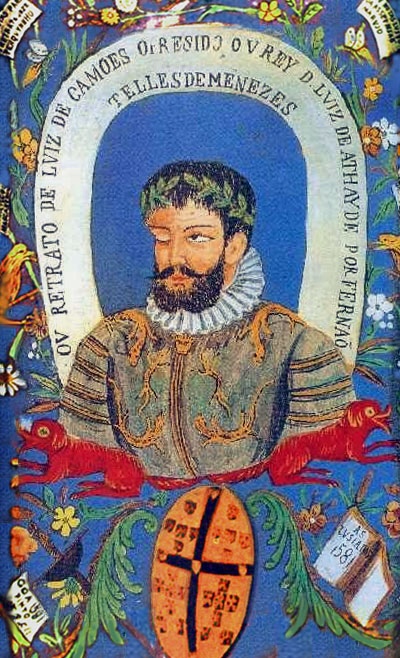
In 1559, while travelling to Goa with his manuscript, Camões was shipwrecked near the mouth of the Mekong River off the coast of Cambodia. Miraculously he survived, but faced the perilous challenge of saving the manuscript of his most important work. Legend has it that Camões had to keep his epic afloat with one hand while swimming through treacherous waters with the other.
After many struggles, Luís Vaz de Camões finally returned to Lisbon in 1570. At that time, the young King Sebastião was on the throne and Camões dedicated “Os Lusíadas” to him. “Os Lusíadas” is a moving human drama that resonates with all of humanity. Despite the acclaim it received upon its first publication in 1572, Camões struggled with poverty throughout his life. The Portuguese crown granted him a modest pension, but it was not sufficient to alleviate his financial hardships.
In 1578, King Sebastião died in battle, and Luís Vaz de Camões did not live to see the invasion of Portugal by King Philip II of Spain. However, he was aware of the looming threat to his country. Camões passed away in 1580, the year Portugal lost its independence to Spain, beginning a three-generation reign of Spanish kings. On his deathbed, Camões wrote: “All will see that my country was so dear to me that I was content not only to die in it, but with it.” After more than 60 years under Spanish rule, Portugal regained its independence. Camões’ patriotism, bravery, literary talent made him a national hero, inspiring the Portuguese to celebrate Portugal Day in his honour.
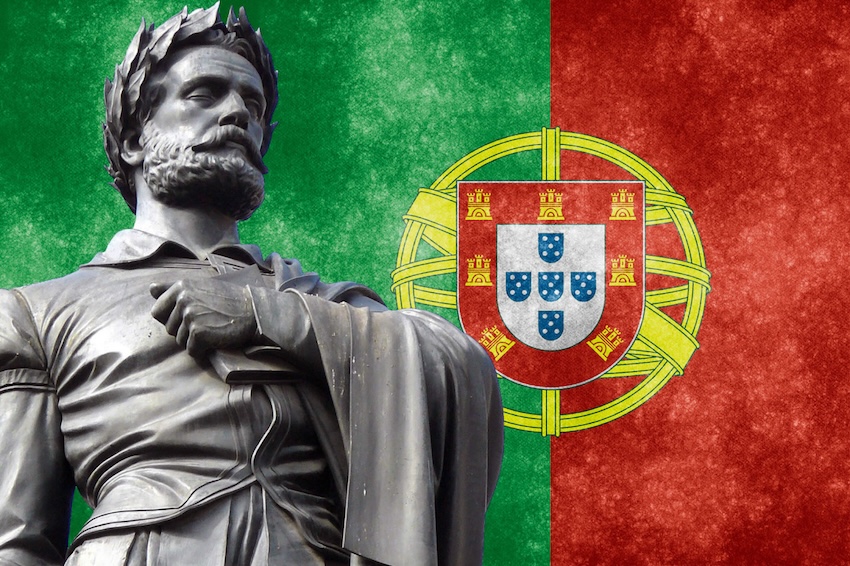
The legacy of Luís Vaz de Camões, the national poet of Portugal is immortalized not only in his writings but also in his resting place. His magnificent marble tomb is situated in the Jerónimos Monastery in Lisbon, near the tomb of his cousin Vasco da Gama. The Monastery was built in honour of Vasco da Gama’s return to Portugal in 1498 after his first historic voyage, linking Camões even more closely to the grand narrative of Portuguese exploration and achievement.
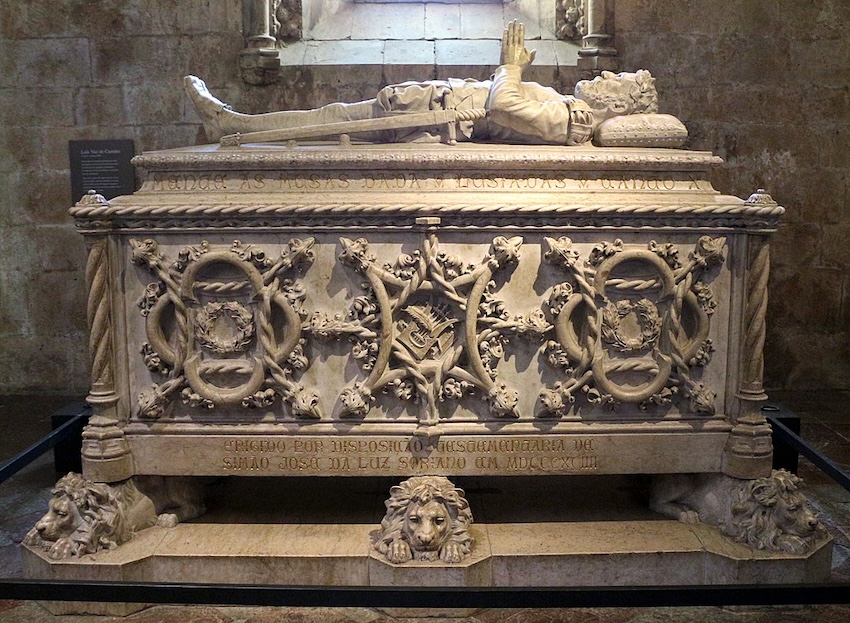
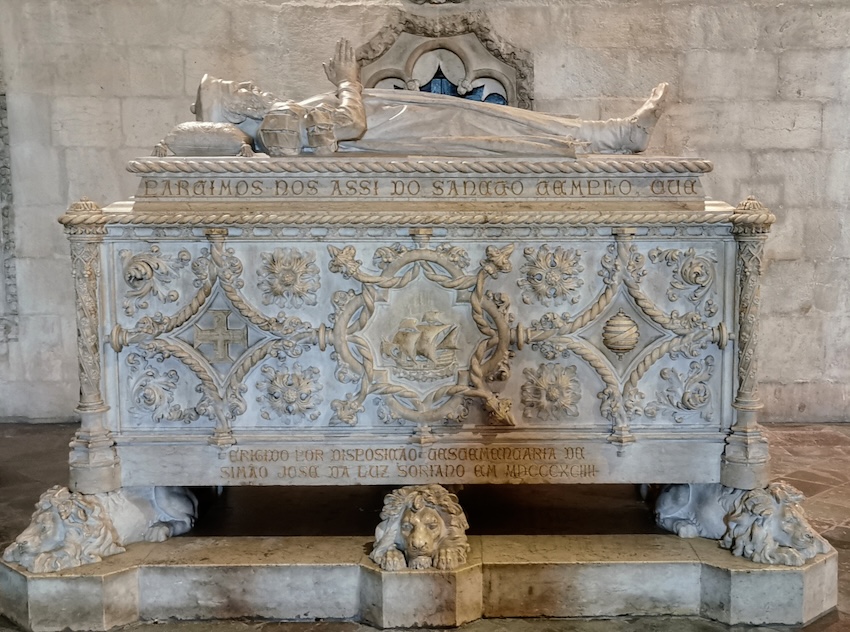
The first English translation of Camões’s work “The Lusiads” was completed by an English diplomat and published in 1655.
Source: Embassy of Portugal to Hungary
Photos by the Embassy of Portugal to Hungary, Wikipedia, and DPA






